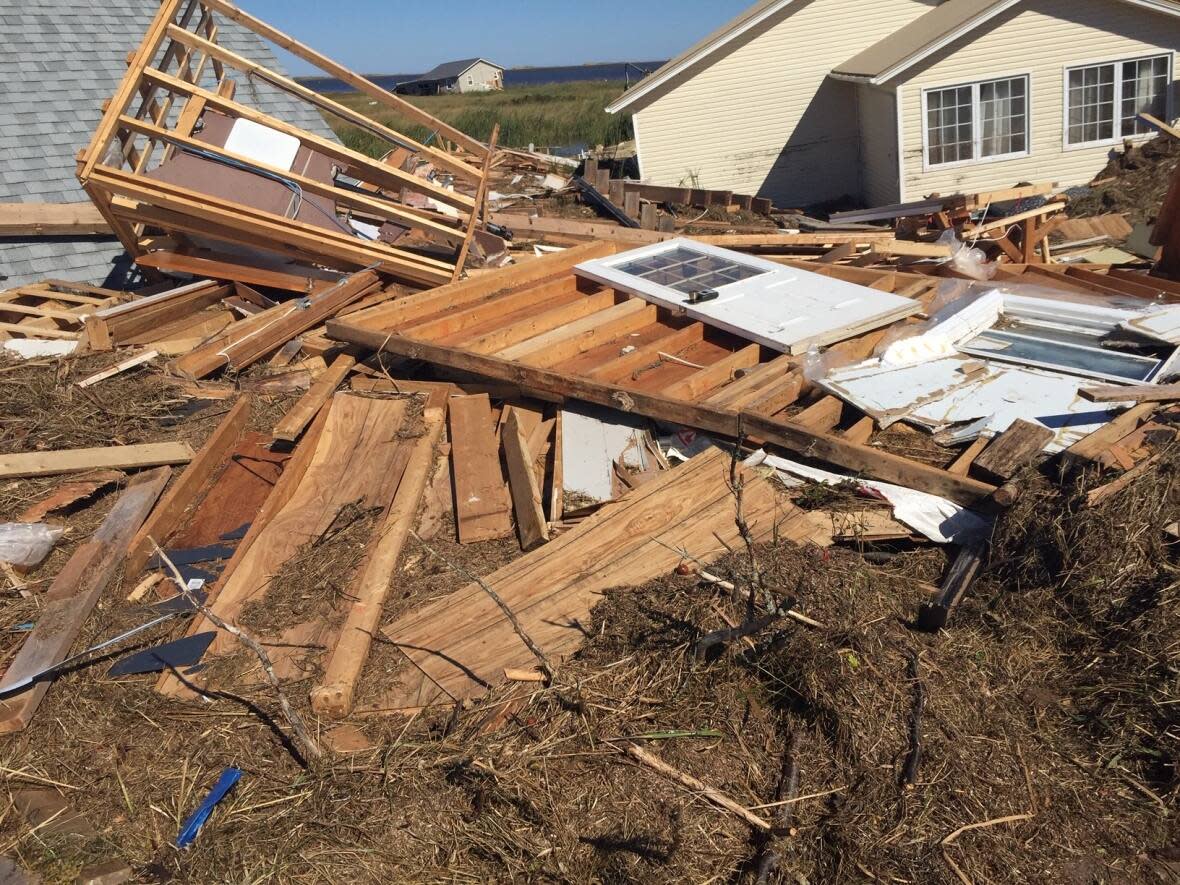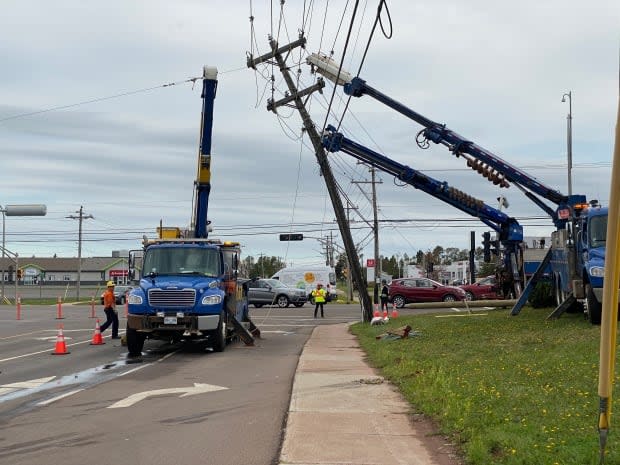Find a better way to distribute emergency relief, MLAs tell P.E.I. government

The P.E.I. government needs to find a more "streamlined" approach to deliver relief funding during the next emergency, according to P.E.I.'s Standing Committee on Health and Social Development.
That committee — which is also responsible for oversight of public safety in the province — delivered 10 recommendations after a series of emergency meetings on the province's response to post-tropical storm Fiona.
The province tapped the Canadian Red Cross to distribute $250 per household in aid money about a week after the storm devastated the Island — much to the chagrin of hundreds of Islanders who spent hour after hour, sometimes day after day standing in line trying to collect.
Committee chair, Liberal MLA Gord McNeilly, said there appeared to be "communications gaps" between the Red Cross and the province.
No hotel rooms for workers
"When the Red Cross came in and they said they couldn't find hotel rooms for Red Cross employees to come over to distribute funds, it doesn't make much sense," he said.
Minister of Social Development and Housing Matthew MacKay has already stated there should be a review of the contract his department entered into with the Red Cross to see whether the organization was able to "provide the service they said they can provide."

The recommendations of the committee aren't binding on government, but the province doesn't seem to need a committee to tell it to find a new way to distribute aid.
After the delays delivering money through the Red Cross, the province announced on Halloween that a new round of inflation support payments would go out through the Canada Revenue Agency. The first time the province did that it took four months before the funds were delivered.
Already looking underground: minister
Something else the committee is recommending: that the province "hold Maritime Electric accountable" for creating a more resilient electrical system. As part of that the committee wants the province to consider moving power lines underground.
Energy Minister Steven Myers said that's already being considered.
"We're looking at some different organizations to help give us some guidance on what burying the infrastructure would look like, not just from a cost perspective but to ensure that it is the answer to our problem," Myers said Thursday.

In its presentation to the committee, Maritime Electric said 1,133 utility poles were broken as a result of Fiona. Restoring power to some customers took three weeks.
Myers said there's also been some consideration as to who should pay if cables are buried.
"If we ask Maritime Electric to bury all the lines and we don't participate … everyone's rates will go up because of it," he said.
A partnership using federal or provincial funding to cover some of the cost, he said, would "save the ratepayer a big rate hike."
Give EMO power to require generators
The committee also recommended changes to the Emergency Measures Act to give EMO the authority to require gas stations and owners of other critical infrastructure to have backup generators on site.
When Fiona hit there was no generator at the Irving fuel tank farm in Charlottetown, the point from which all fuel on the Island is distributed.
That meant trucks couldn't be fuelled up to provide gas to refill pumps at stations which had their own backup generators and were able to pump gas.

There were long lines of customers at those stations trying to buy gas to refill their own household generators, and some stations ran out of fuel.
The committee also recommended that priority lists maintained by different groups to guide restoration efforts be consistent "to ensure that our most important infrastructure and vulnerable populations are prioritized appropriately."
It became clear during committee meetings that EMO and Maritime Electric each maintained their own priority lists. There were also criticisms over how long it took to restore power to some long-term and community care facilities and seniors' housing complexes.
Some other recommendations from the committee to improve future emergency responses:
That the province consider creating a vulnerable persons' registry to guide aid and restoration efforts.
That EMO staffing be increased, to allow the agency to operate for longer periods of time.
That public communication be improved so Islanders can receive pertinent information "quickly and effectively."
McNeilly said the committee was only "scratching the surface" in terms of delving into the response to Fiona.
The premier has promised a review of some kind. There have been calls to make that a public inquiry, but the governing PCs voted down a motion calling for one in the legislature earlier this month.
"We're still in recovery," said Darlene Compton, the minister responsible for public safety and the province's deputy premier.
"Until we've actually wrapped up the whole process of emergency measures regarding Fiona, then government will look at whether there should be an inquiry. And I wouldn't be against that, for sure."


